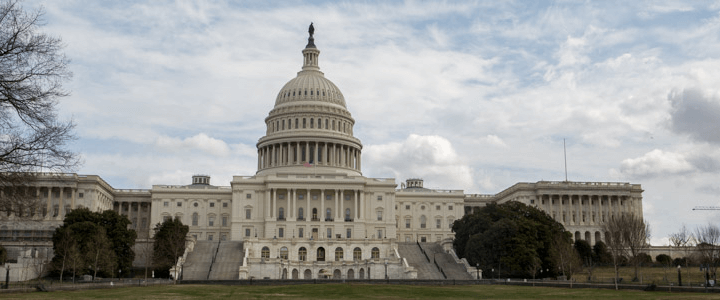The security clearance process remains in disrepair as we enter 2018. An astounding clearance backlog discourages and eventually repels otherwise worthy applicants desperately needed by the cleared community. People who should not have clearances, meanwhile, have them, as revealed in recent years by the repeated catastrophic intelligence leaks. Agencies and industry lack reciprocity, which means a security clearance at one office may not transfer cleanly to another, even if the clearance in question is identical. With intelligence leadership and Congress finally recognizing the problem, however, there are signs that 2018 might finally bring real security clearance reform and improvements to processing times.
OH MY GAO!
Presently, nearly 700,000 men and women are awaiting security clearance investigations. “The consequence of the backlog, for starters, is that you lose good people who are not prepared to wait eighteen months to two years for their first clearances,” says David Shedd, former acting director of the Defense Intelligence Agency. “The average 23 or 24-year-old who desires a career in, for example, intelligence, is not going to wait around for two years for a clearance, given the mounting college debt they’re bringing with them. They’ll take a job elsewhere.”
Industry estimates place worker attrition caused by clearance delays at 10,000.
Shedd tells ClearanceJobs.com that part of the backlog problem is the one-size-fits-all approach to investigations. Someone retired, for example, but with an active clearance should be able to re-enter the cleared workforce without enduring the same rigorous background check that got him or her the clearance in the first place. He likens this to TSA PreCheck; because some flyers have been investigated previously, there’s no need to scan their shoes and belts each time they enter an airport.
Moreover, some job seekers are simply safer bets in terms of threat to secrets and national security. To reduce the backlog, those who meet a certain standard should be prioritized and adjudicated quickly. “You tier it based on risk,” he says. “Someone with little to no overseas travel, who doesn’t have relatives overseas, those clearances are relatively easy to process. You move those out much more quickly.”
The problems with the security clearance investigation process have been known for several years, and though agencies have been working to address them, an audit released last month by the Government Accountability Office revealed bad news. The report states that no meaningful reciprocity policy has been established “to guide agencies in honoring previously granted clearances by other agencies.” The National Background Investigations Bureau “has not developed a plan for reducing the backlog or established goals for increasing total investigator capacity.” The Office of the Director of National Intelligence has dipped a toe in establishing continuous background checks, “but it has not yet determined key aspects of the program, and it lacks plans for implementing, monitoring, and measuring program performance.”
Congress, continuous evaluation and the push for reform
All of that might be changing. Policymakers, intelligence community leadership, and private industry seem aligned on the magnitude of the problem, and 2018 might be the year when real progress is made. On Capitol Hill, the Securely Expediting Clearances Through Reporting Transparency Act of 2017, which almost (but not quite) spells SECRET Act, requires quarterly updates from the National Background Investigations Bureau on the state of the clearance backlog, with detailed figures on who is being cleared, and how fast, broken down by clearance level. Congressional committees and staffers thrive on data, which is what makes the bill such a powerful weapon in reforming the system. Every three months, members of Congress can see the bureaucratic bottlenecks in black and white, and demand accountability. The SECRET Act has found bipartisan support in the House of Representatives, passing that chamber earlier this month, and has been sent to the Senate for amendment or passage.
Intelligence committees in the House and Senate have also expressed support for continuous evaluation programs—real-time monitoring of indicators that detect behavioral anomalies in employees—as well as clearance reciprocity, in which a cleared individual can carry a security clearance from one employer to another without requiring further screening. Agency heads, meanwhile, are aligned on the issue of reciprocity within government, recognizing that clearance problems affect the ability of the intelligence community to do missions, both in terms of morale and because of good candidate employees are lost due to clearance bottlenecks.
Shedd is confident that 2018 will see progress on clearance issues. “Having a clearance is a privilege and not a right,” he says. “You give up certain aspects of your life by having a clearance. You sign paperwork that says you can look at my finances. You can look into my social media. All of that can be done electronically. It’s time to do it. I’m optimistic that in 2018, the right people will take this on and try and make a real difference because right now it is not working.”




